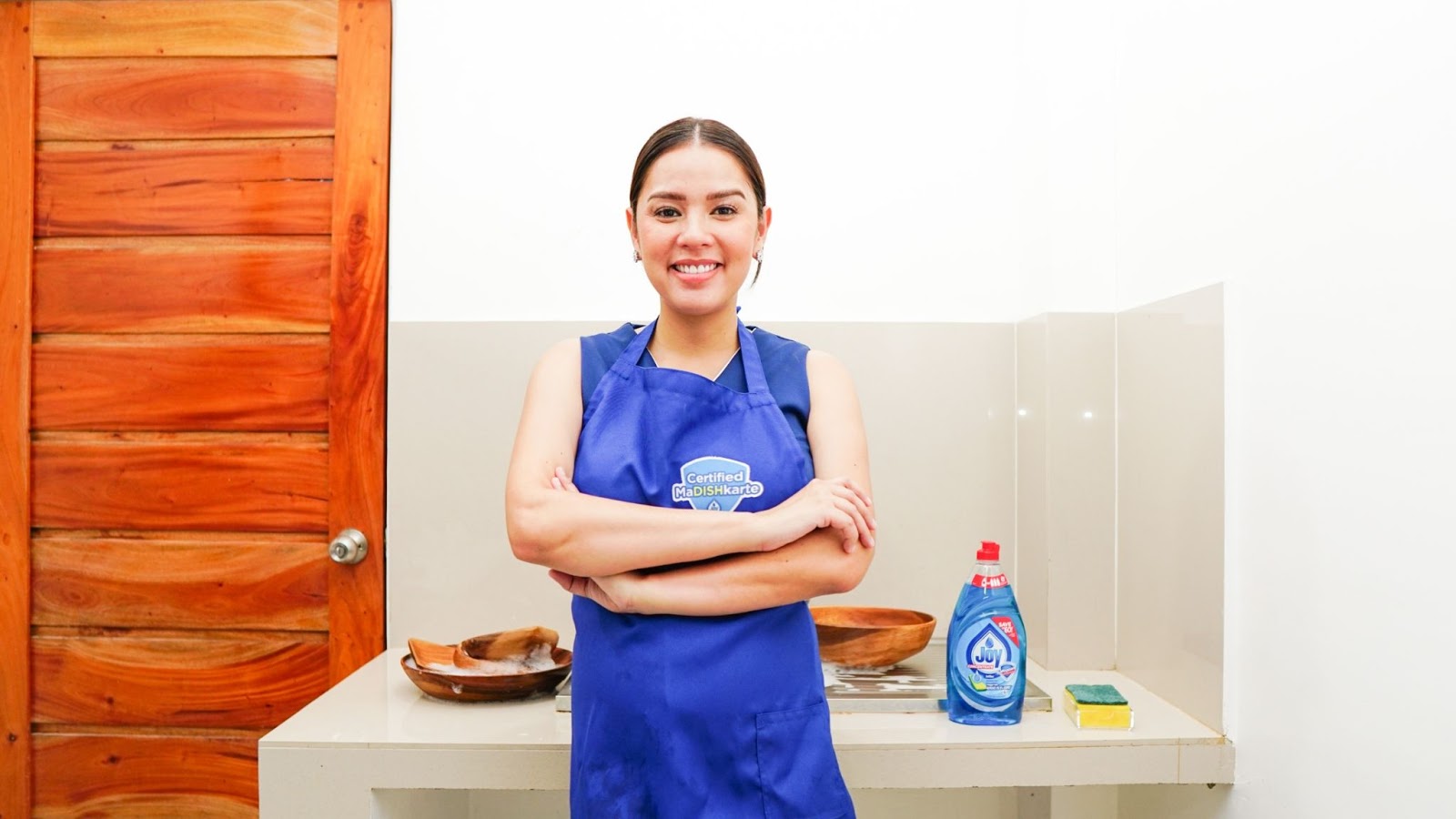Ready to level up your cleaning game and try some #CertifiedMaDISHkarte tips?

Clean homes don’t just miraculously clean themselves and in the whirlwind of busy lives, it’s important to learn effective tips and tricks to keep your house clean and healthy. This includes making sure you’re more vigilant with the cleaning materials you use, as well as how you clean them. While we go above and beyond in disinfecting the things that come inside our homes, we must also give that same attention to the ones already inside. What’s one of the dirtiest objects in your house? It’s–guess what–that small squishy soft sponge you use to wash the dishes.
Some of the bacteria aren’t harmful and might just make your sponges smelly, but others could potentially make you sick. The worst part is it can contaminate everything it touches if left unsanitized–like dishes and utensils. Wash dishes like a pro and have that peace of mind that comes with knowing you’re not cleaning dishes with a germy sponge. Check out these useful and easy-to-follow #CertifiedMaDISHkarte tips straight from the country’s top celebrity moms:
Rinse and clean your sponge especially after using it.
While it’s tempting to just toss it back as soon as you’re done with washing the dishes, always remember that our cleaning tools also need a good cleaning. “I clean my sponge daily and really take time to rinse it properly to make sure there are no food scraps left. I don’t mind spending extra minutes doing it. It’s worth it especially if it means my family can be safer,” shared top actress Jodi Sta Maria.
Another tip from Isabel Oli is to lather it up with dish soap and rinse it with running water. “The kitchen sponge can easily pass on bacteria to everything it touches. If you have a clean sponge, it decreases the odds of spreading the bacteria,” the actress said.
Be choosy with your sponge holder.
After washing your sponge, wring out your sponge completely after each use. Remember, a properly wrung-out sponge will dry quicker, and a drier sponge equals a cleaner sponge. “Soggy wet sponges harbor more bacteria so I let mine completely dry after every use with a proper sponge holder. I make sure it has proper drainage so it dries faster,” said Danica Sotto-Pingris.
Replace your kitchen sponges every once or twice a week.
“Para sa akin, dapat ugaliin na magpalit ng mga mga kitchen sponge. A good rule of thumb according to experts is to replace it every 1-2 weeks, depending on the amount of use.” said Neri Miranda. Kitchen sponges are sneaky harbors of bacteria, molds, and yeast. If you’ve ever kept a sponge so long it started to smell bad, what you’re smelling is a happy colony of bacteria growing in it.
Only use a trusted dishwashing liquid with proven anti-bac properties.
When it comes to dishwashing liquid, these celebrity moms always choose the trusted dishwashing liquid with proven anti-bac properties, Joy Antibac Dishwashing Liquid. It kills 99.9% of germs on dishes and kitchen sponges, giving you the peace of mind that your dishes and sponges are as clean as they can be–definitely something ordinary liquids or dilutes cannot promise to do.
Be a #CertifiedMaDISHkarte mom with Joy Antibac Dishwashing Liquid para siguradong patay ang 99.9% of germs on dishes and kitchen sponges at para safe ang pamilya. Visit facebook.com/JoyPhilippines for more #CertifiedMaDISHkarte tips para siguradong IWAS GERMS, IWAS SAKIT.




